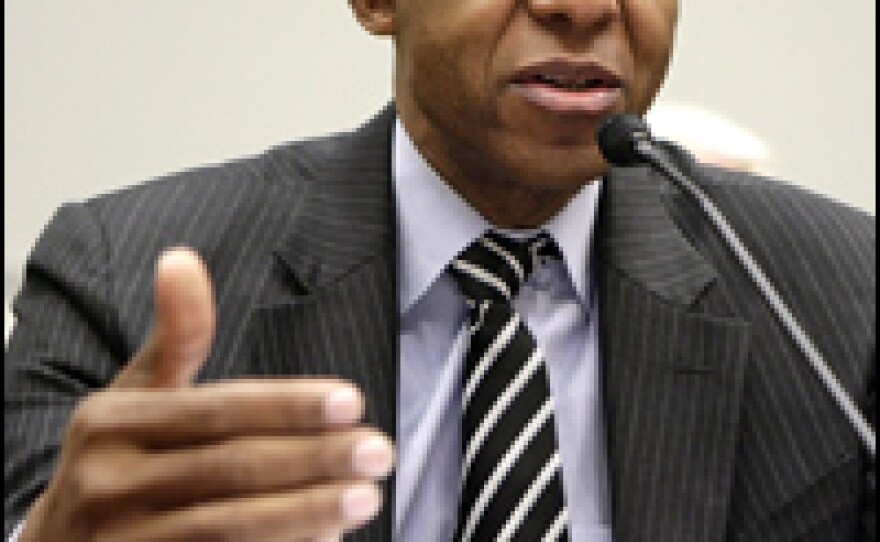
Rep. William Jefferson (D-LA) was indicted Monday on federal charges of racketeering, soliciting bribes and money-laundering, marking the latest chapter in a case that has raised thorny issues about the separation of powers and the legal protections afforded to members of Congress.
The charges stem from a long-running bribery investigation into business deals Jefferson tried to broker in Africa. Federal prosecutors Monday outlined a case that has all the features of a pot-boiler, including clandestine meetings, code words and a freezer full of cash.
"Mr. Jefferson traded on his good office to enrich himself and his family through a pervasive pattern of fraud, bribery and corruption that span many years and two continents," said U.S. Attorney Chuck Rosenberg.
Prosecutors allege that Jefferson collected more than $400,000 in bribes.
Jefferson's lawyer responded to the charges by saying that his client is innocent. He is due to be arraigned Friday in U.S. District Court in Alexandria.
In May 2006, the FBI raided Jefferson's congressional office, the first such raid on a sitting congressman's Capitol office. That move sparked a constitutional debate over whether the executive branch had stepped over the line.
Jefferson and some congressional legal experts say the raid on his office violated the "speech-or-debate" clause of the U.S. Constitution, which protects federal lawmakers in their legislative duties. The FBI maintains the raid was "necessary, appropriate and constitutional." The debate over the raid has tied the case up for a year and is still working its ways through the courts.
Federal prosecutors now suggest that they can make their case against Jefferson without relying on the documents seized during the contested raid of his Congressional office.
The alleged violations include racketeering, soliciting bribes, wire fraud, money-laundering, obstruction of justice, conspiracy and violations of the Foreign Corrupt Practices Act. Prosecutors allege that Jefferson had his hands in a number of corrupt dealings, including a sugar plant in Nigeria and a satellite transmission firm in Botswana.
Court records indicate that Jefferson was videotaped taking a $100,000 cash bribe from an FBI informant. Most of that money later turned up in a freezer in Jefferson's home. He had separated the money into $10,000 increments and wrapped the bundles in aluminum foil, federal investigators say.
Two of Jefferson's associates have already struck plea bargains with prosecutors and have been sentenced. Jefferson is accused of soliciting bribes for himself and his family, and also for bribing a Nigerian official.
Responding to suspicions about the timing of the indictment, given the controversy surrounding the Justice Department itself, Rosenberg said: "Frankly, we don't give a damn about politics. We believe he broke the law, and that's why we brought the charges. Period."
If convicted on all of the 16 charges, Jefferson faces up to 235 years in prison.
Monday afternoon, defense attorney Robert Trout told reporters that FBI agents had tried to catch Jefferson in a sting.
"They decided that it was an opportunity on their part to bring down a congressman," Trout said. "They get excited about that. In this case, they picked the wrong congressman, and they picked the wrong facts."
Trout said that when Jefferson is arraigned on Friday, he will plead not guilty. And he will not plea bargain.
Copyright 2022 NPR. To see more, visit https://www.npr.org. 9(MDAzMjM2NDYzMDEyMzc1Njk5NjAxNzY3OQ001))






